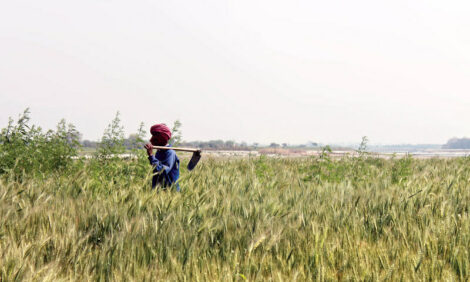



G20: Farm Groups Appeal To Ministers
GLOBAL – On the eve of the G-20 Farm Minister's meeting, farm groups from around the world are calling for coherence saying trade policy must not dictate agricultural policy.Farm groups from 66 countries in Africa, the Americas, Asia and Europe adopted a joint declaration, stressing that trade policy must not be allowed to dictate domestic agricultural policies or ignore non-trade concerns - contrary to the commitments undertaken in the Uruguay Round.
In the wake of growing world food demand, they say food security is crucial, and better coherence between World Trade Organisation (WTO) and other global concerns is required.
With less than 10 per cent of the world’s agricultural production traded on global markets, agriculture plays an important role in providing food security to local populations, maintaining viable rural communities and looking after precious land resources.
Farm groups, therefore, are insisting on the recognition of the special and strategic role of agriculture in light of the huge challenges it faces: increasing price volatility exacerbated by excessive speculation on the markets, finite land and water resources and threats posed by climate change.
Meanwhile, the high number of hungry in the world persists and world food demand is rising.
During a media conference in Brussels, Djibo Bagna, President of Roppa, representing farm organisations from West Africa said: “We are questioning if the approach of simply opening markets, without regard to these issues and how they impact farmers who produce food, is really the best way forward.”
“Better coherence is required between any agreement on agriculture at the WTO and the commitments undertaken through other major international treaties on issues such as poverty, hunger, climate change and biodiversity.”
Paolo Bruni, Cogeca President, representing farm organisations across the EU commented: “We firmly support the objective that countries respect the same clear, transparent and predictable rules for world trade.”
“But trade is a means of enabling human development, not an end in itself. Food is vital for human life and cannot be treated like other commodities.”
“The WTO Agreement on Agriculture, Article 20 c. extent of liberalisation must, therefore, be tempered by the need to provide the means and economic incentives to farmers in all parts of the world, so that they can fulfil their production potential in a sustainable way.”
The groups say that governments need to take coordinated action to ensure more stability on agricultural markets and to strengthen farmers’ position vis-à-vis highly concentrated agri-food businesses.
Ther are also calling for a more harmonised approach to protect the environment and biodiversity as well as addressing climate change.
Farm groups are pressing their political leaders to take into account the following basic principles when pursuing trade agreements:
- all countries must have the right to produce for domestic consumption in order to improve self-sufficiency and ensure their food security, including the use of tariff measures;
- trade rules must allow for policy measures, including supply management, which promote stability of food supplies and prices;
- special and differential treatment and capacity-building for developing countries must enable them to address the real concerns of resource-poor, vulnerable and small-scale farmers, and;
- all countries should have the right to meet the non-trade concerns of their citizens including food safety, the environment, animal welfare and needs of rural areas so as to promote sustainable agriculture and, help combat climate change and, protect biodiversity.
TheCattleSite News Desk


